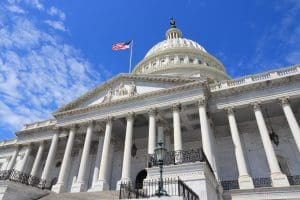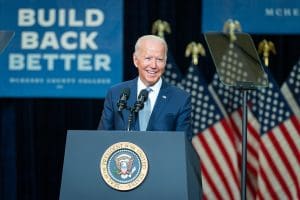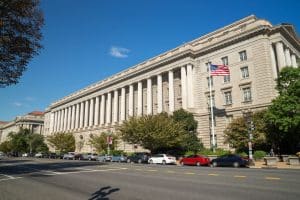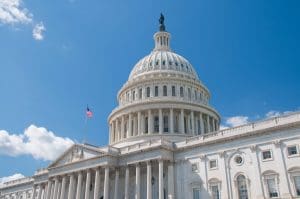The economic crisis caused by the coronavirus pandemic poses a triple challenge for tax policy in the United States. Lawmakers are tasked with crafting a policy response that will accelerate the economic recovery, reduce the mounting deficit, and protect the most vulnerable.
To assist lawmakers in navigating the challenge, and to help the American public understand the tax changes being proposed, the Tax Foundation’s Center for Federal Tax Policy modeled how 70 potential changes to the tax code would affect the U.S. economy, distribution of the tax burden, and federal revenue.
In tax policy there is an ever-present trade-off among how much revenue a tax will raise, who bears the burden of a tax, and what impact a tax will have on economic growth. Armed with the information in our new book, Options for Reforming America’s Tax Code 2.0, policymakers can debate the relative merits and trade-offs of each option to improve the tax code in a post-pandemic world.

Paying for Reconciliation Bill with “Health Care Savings” Threatens Medical Innovation
One of the ways lawmakers intend to pay for $3.5 trillion of new spending in the budget reconciliation package is by creating “health care savings.” The leading proposal to achieve this is H.R. 3, the Elijah Cummings Lower Drug Costs Now Act, which would change the way that prescription drug prices are negotiated under Medicare Part D.
5 min read
International Tax Proposals and Profit Shifting
There are many ways the U.S.’s international tax rules could be changed, reformed, improved, or worsened. Reflexively jacking up taxes on U.S. multinationals does not necessarily accomplish the goal of reducing or eliminating profit shifting, and it would in fact worsen it.
6 min read
Claiming 97 Percent of Small Businesses Exempt from Biden Taxes Is Misleading
The Biden administration recently cited an analysis from Treasury claiming that “the President’s agenda will protect 97 percent of small business owners from income tax rate increases.” However, the figure is misleading. To assess the economic effect of higher marginal tax rates, it matters how much income or investment will be affected—not how many taxpayers.
3 min read
COVID-19 Tax Relief Added to Increasing Share of Households Paying No Income Tax
According to the Tax Policy Center, an estimated 60 percent of U.S. households paid no income tax in 2020, up from around 43 percent of households in 2019.
4 min read
Adoption of Global Minimum Tax Could Raise U.S. Revenue…or Not
This interaction between the U.S. proposals and those that may be put into law in foreign jurisdictions should give lawmakers caution when evaluating the revenue potential of changes to GILTI.
7 min read
Considering Trade-offs to Improving Tax Collections
Recent Biden administration proposals rely heavily on revenue from better IRS tax collections to fund spending initiatives. The American Families Plan uses several avenues to reduce the tax gap (or the difference between taxes paid and taxes owed), from increasing the IRS’s tax enforcement budget to improving information technology and expanding reporting requirements.
4 min read
Analysis of Sen. Wyden’s Pass-through Deduction Proposal
Sen. Wyden recently introduced the Small Business Tax Fairness Act—the impact of which we modeled—to reform the Section 199A pass-through business deduction created in the Tax Cuts and Jobs Act (TCJA) of 2017. The provision currently allows taxpayers to deduct up to 20 percent of their qualified business income from their taxable income, subject to certain limitations.
2 min read
Four Revenue Scores on Options to Change U.S. International Tax Rules
Changes to international tax rules are likely on the way, and it is therefore important for lawmakers to understand how various reform options would impact U.S. tax burdens on multinational companies. Moreover, policymakers should also recognize the need for prudent policies that do not put U.S.-based multinationals at a competitive disadvantage or severely curtail investment and hiring.
9 min read
Evaluating Trade-Offs of Expanded Premium Tax Credits as Enrollment Period Ends
August 15th was the deadline to take advantage of the premium tax credits originally provided in the Affordable Care Act and recently expanded in the American Rescue Plan. Future extensions may provide longer-lasting benefits, although the extensions may create trade-offs for consumer choice and program costs.
5 min read
How Biden’s Tax Plans Could Negatively Impact Housing
While President Biden has many proposals aimed at increasing the supply of affordable housing, including tax credits, his plans to raise business taxes could hinder that goal.
4 min read